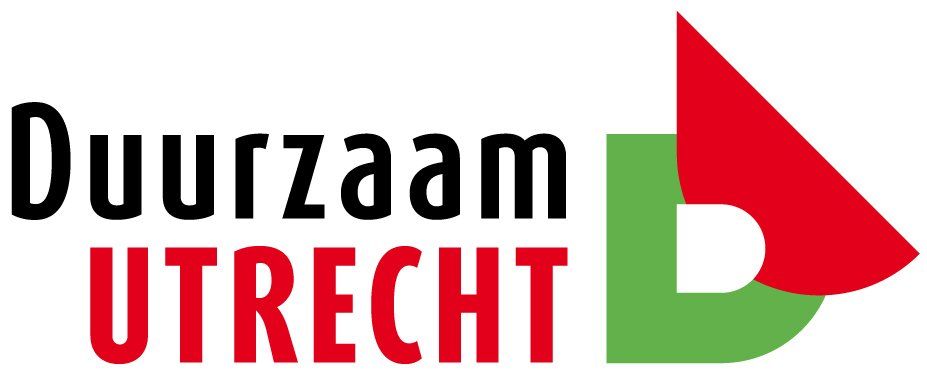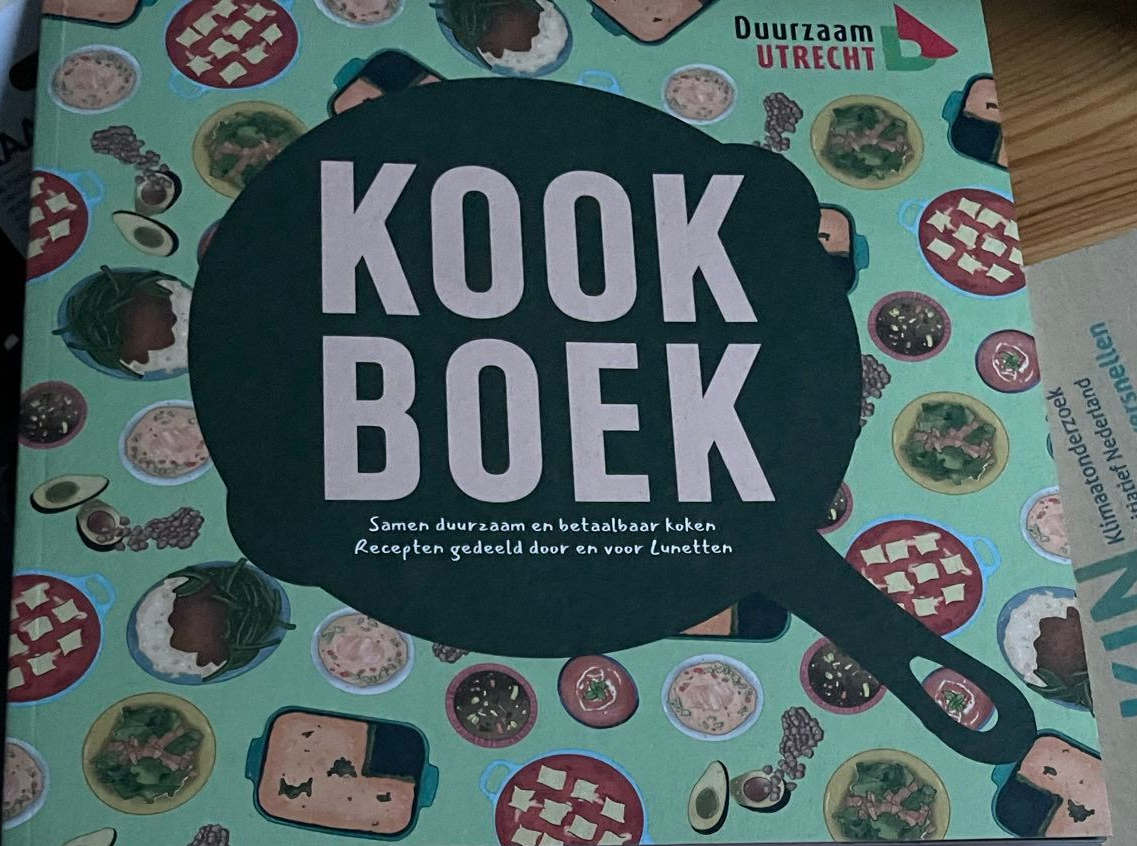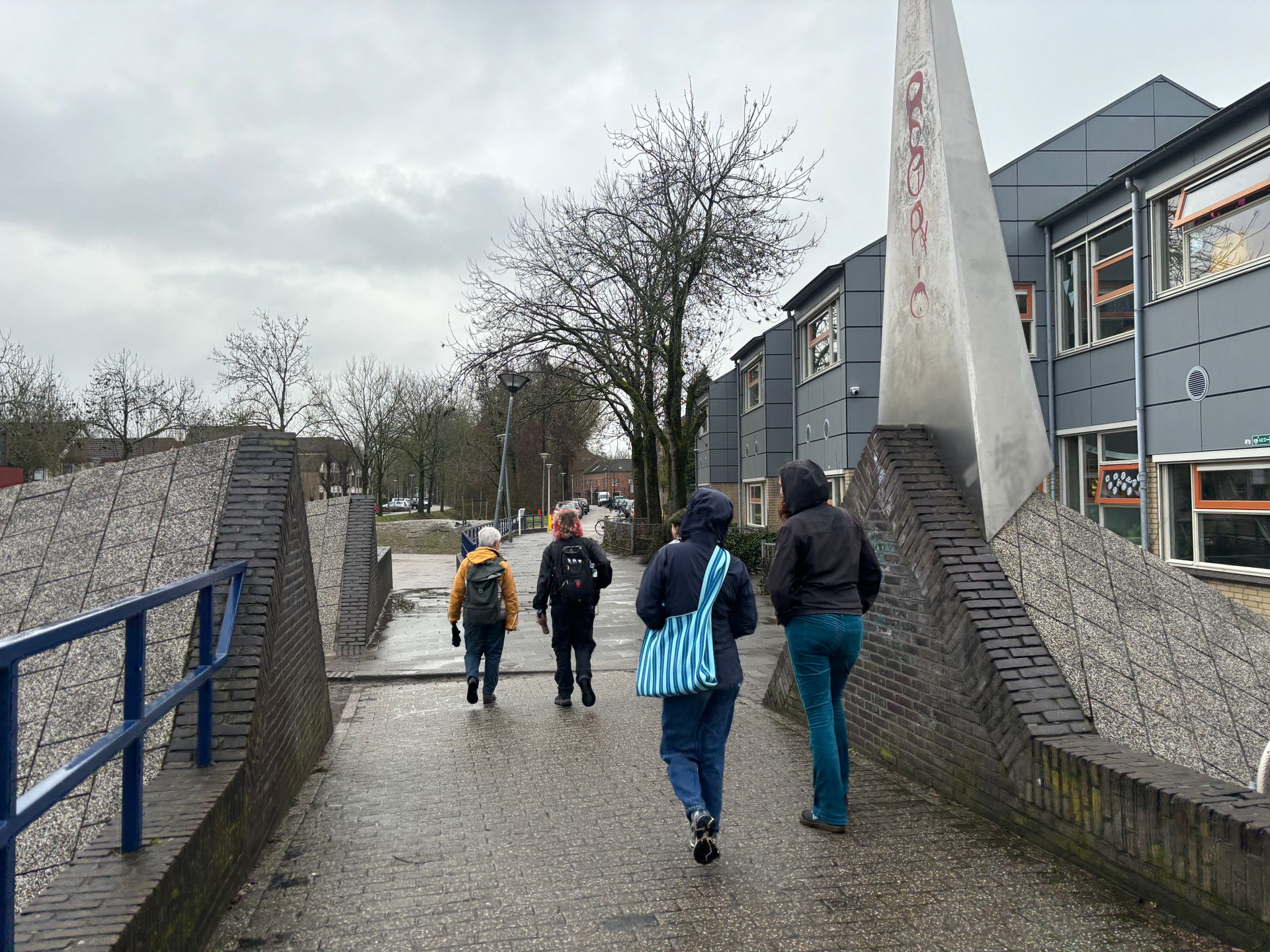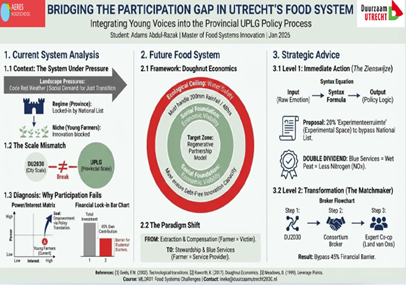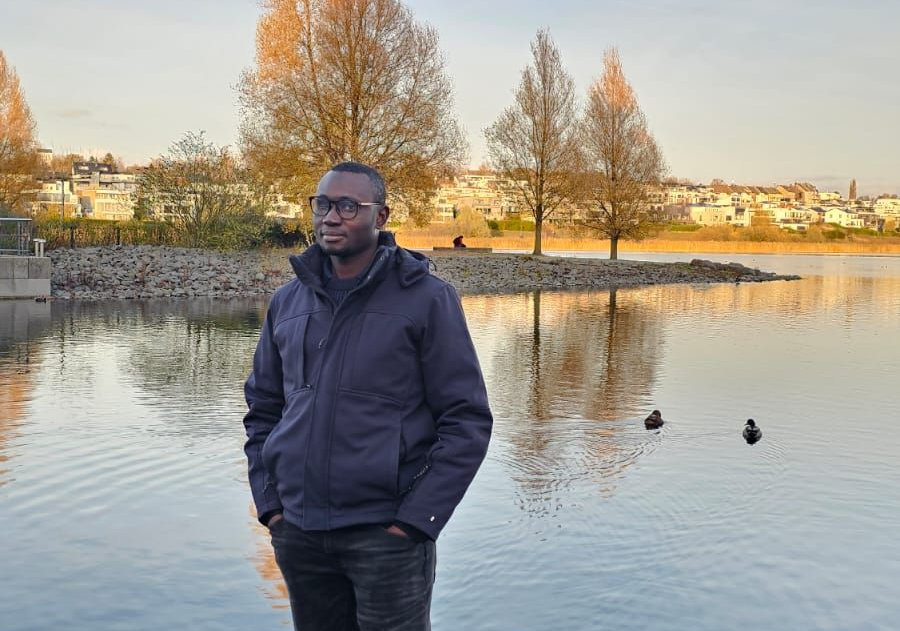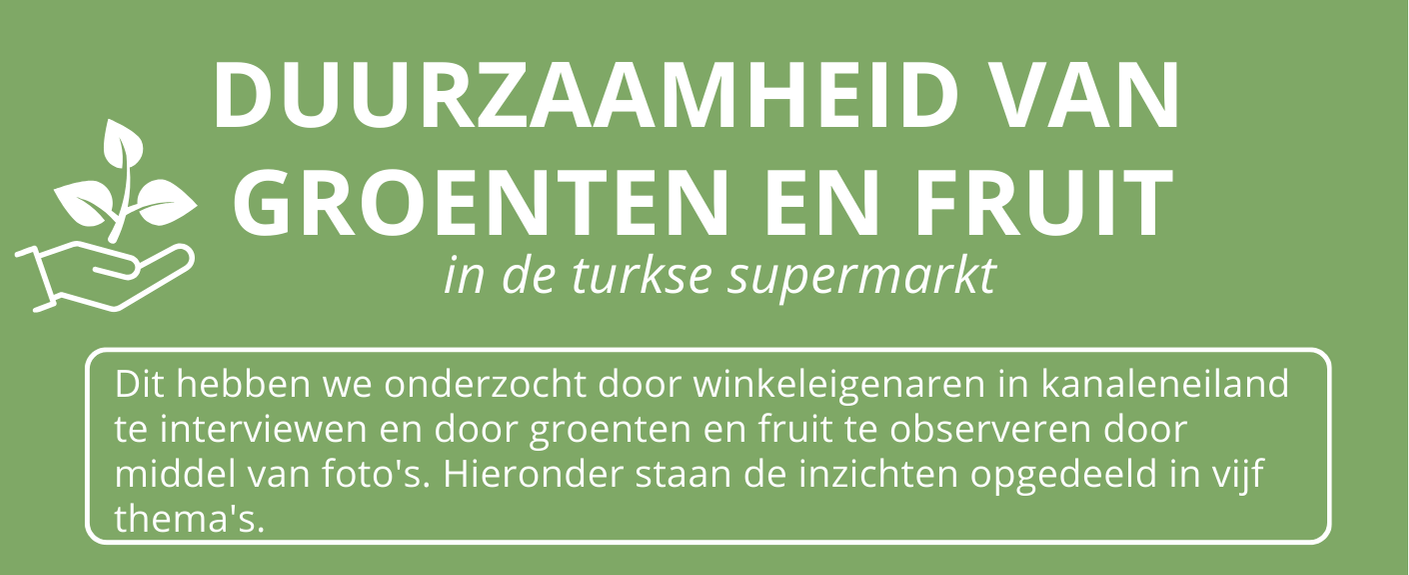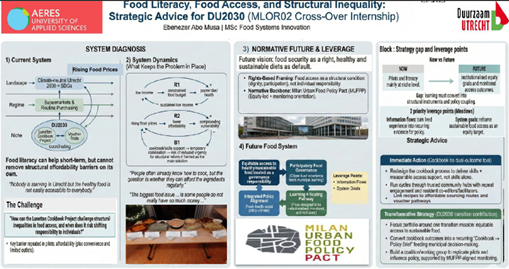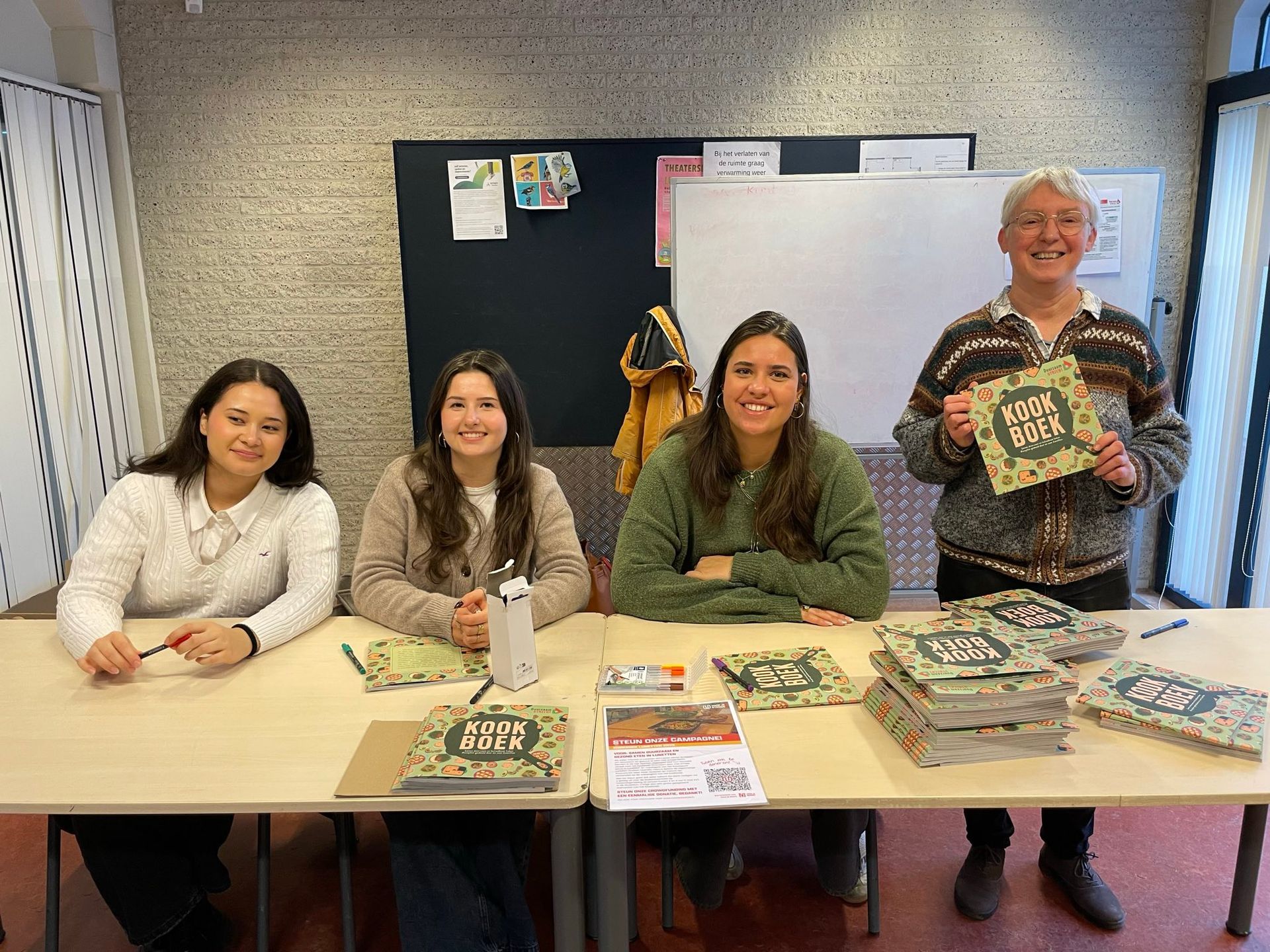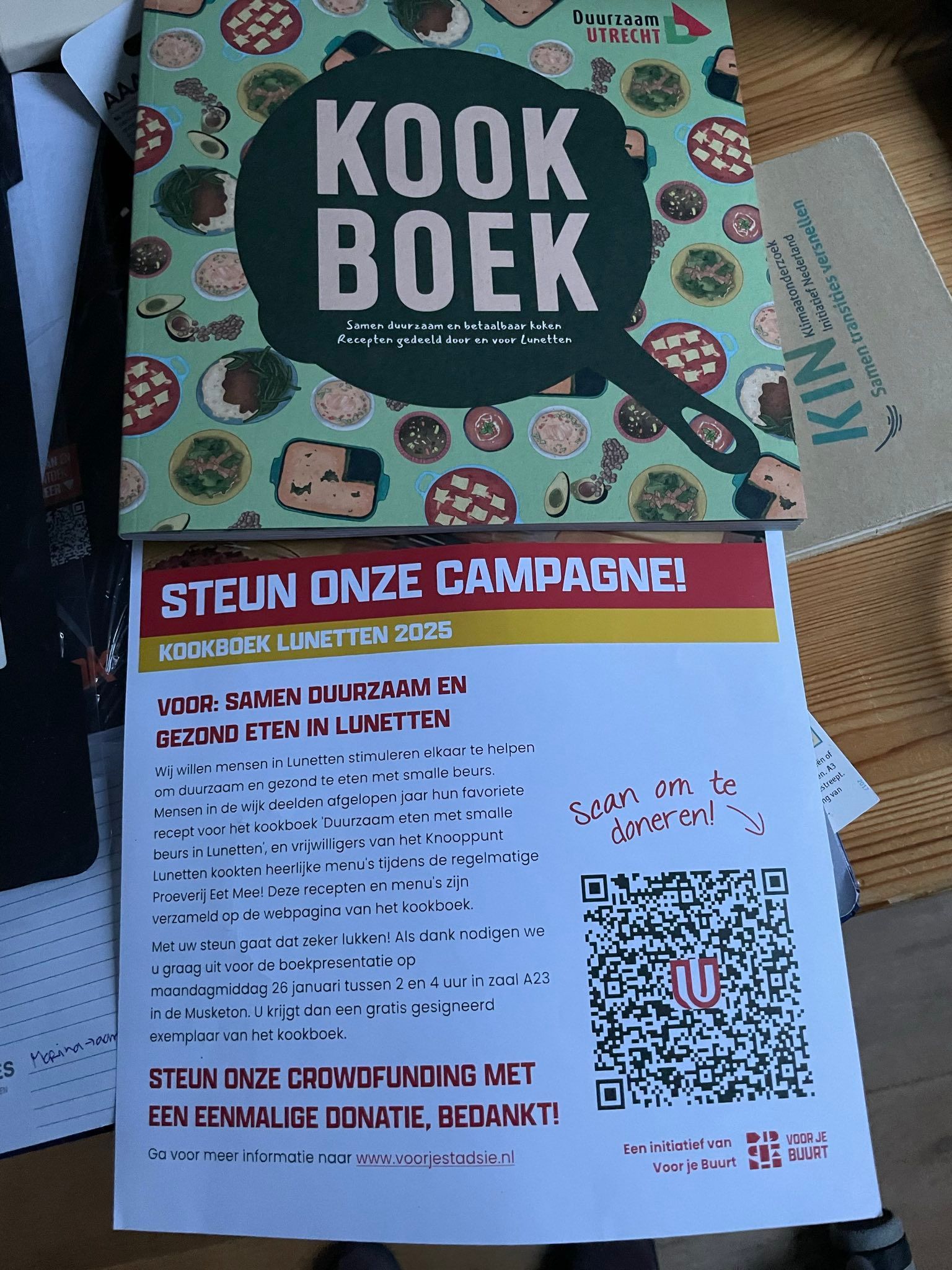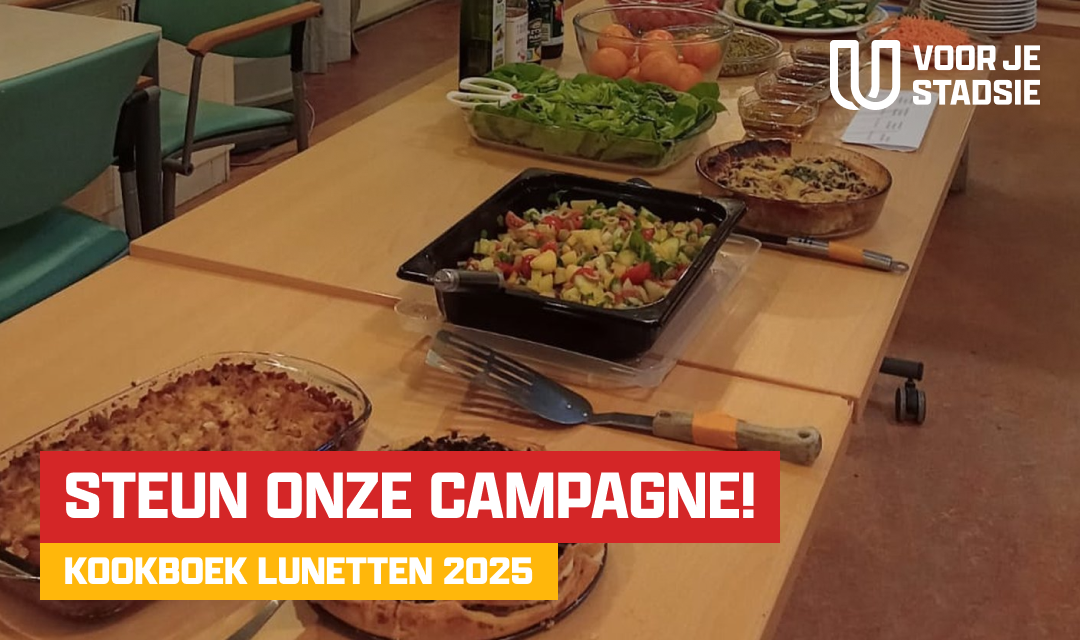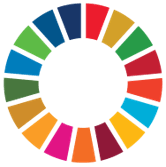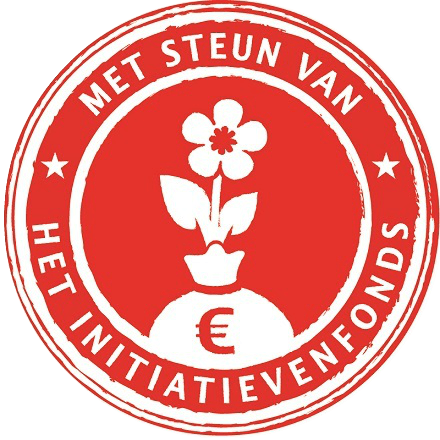Kom 8 februari 2024 naar het Utrechtse stadhuis
We vragen de gemeenteraad dan biologisch eten voor iedereen mogelijk te maken
Samen met studenten en vrijwilligers bezoeken we in Duurzaam Utrecht 2030 mensen met smalle beurs op plaatsen waar ze zich thuis voelen, en vragen hoe ze zelf duurzaam willen leven. Vervolgens zoeken we partners om die wensen in co-creatie met de doelgroep mogelijk te maken. Hierbij gaan sociale rechtvaardigheid en bescherming van het milieu hand in hand. Dit idee is bedacht tijdens de workshop Duurzaam Utrecht 2030 op 9 oktober 2021 in de Dominicuskerk in Utrecht. Het initiatief krijgt steeds meer draagvlak. Dit is zichtbaar door twee toegekende prijzen: de derde prijs van de Mantel van Sint-Maarten 2022, en een van de drie U Awards van Utrecht 4 Global Goals in 2023.
In de afgelopen twee jaar en drie maanden hebben we ongeveer duizend mensen gesproken op tientallen plaatsen verspreid over de stad Utrecht. Het project is in 2022 en in 2023 deels gefinancierd door het Initiatievenfonds van de gemeente Utrecht, de Katholieke Caritas Utrecht en de derde prijs van de Mantel van Sint-Maarten 2022. In 2022 droeg ook Kerk en Wereld financieel bij. Daarnaast steunen tientallen organisaties en personen het initiatief in natura. In totaal hebben 65 studenten van HBO, Universiteit of middelbare school in het kader van hun studie of als stagiair substantieel bijgedragen aan het project, waarvan 27 van voorjaar 2022 t/m januari 2023 en 38 tussen februari 2023 en februari 2024. We hebben 23 andere jongeren op weg geholpen met hun eigen project. Ook honderden vrijwilligers, die actief zijn in tientallen organisaties uit het netwerk van Duurzaam Utrecht 2030, hebben meegewerkt aan activiteiten of berichten verspreid in (sociale) media. Lees er meer over in deze nieuwsbrief.
Spreekt het u aan? Met uw hulp kunnen we nieuwe stappen vooruit maken, zoals:
Biologisch eten voor iedereen
Voortbouwend op de proef met gesubsidieerde biologische boodschappen in Lunetten bieden we op 8 februari 2024 een petitie aan over biologisch eten voor heel Utrecht aan de gemeenteraadscommissie Energie(transitie), Duurzaamheid, Vastgoed en Wonen. We zoeken ook partners voor een vervolg in Lunetten, en voor soortgelijke proeven in een of twee andere wijken.
Mobiliteitsarmoede
Het rapport over mobiliteitsarmoede van studenten van de HAS Hogeschool wordt in februari bekend. Daarna willen we vervolgprojecten starten, waarvoor we partners zoeken. Een mogelijkheid is om een enquête of gesprekken te houden over mobiliteitswensen van bewoners van Sterrenwijk als het buurtcentrum Sterrenzicht verduurzaamd wordt en de activiteiten tijdelijk ergens anders plaatsvinden.
Communicatie
In 2024 ontwikkelen we het communicatieplan voor Duurzaam Utrecht 2030 verder, om zo het bereik en de impact van het initiatief binnen en buiten Utrecht te vergroten. Daarbij leggen we de nadruk op concrete resultaten die inmiddels bereikt zijn, bijvoorbeeld van de proef met gesubsidieerde biologische boodschappen. Ook concrete vragen voor vervolgprojecten door studenten en andere partners brengen we sterker voor het voetlicht.
Energiearmoede
Als we de juiste partners kunnen vinden, willen we in 2024 proberen een voorbeeldproject in een wijk op gang te helpen waarbij vrijwillige klussers en verhuurders van sociale woningen samenwerken om deze woningen in overleg met bewoners te verduurzamen.
Nieuwe onderwerpen
Jongeren en mensen met een migratieachtergrond hebben behoefte aan concrete oplossingen en voorlichting om afval te scheiden, verpakkingsvrij te winkelen, minder te vliegen en minder te consumeren. In overleg met partners proberen we hieraan in 2024 tegemoet te komen.
Neem contact op als u mee wilt helpen: ineke@duurzaamutrecht2030.nl


